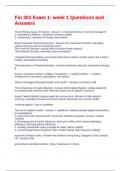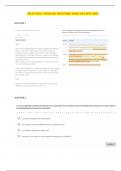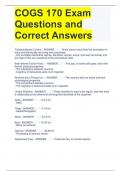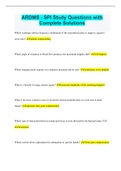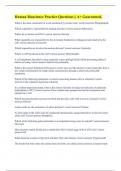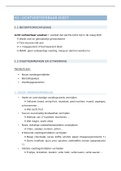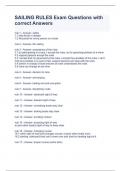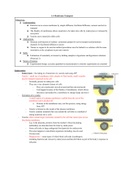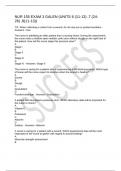Exam (elaborations)
Fin 301 Exam 1- week 1 Questions and Answers
- Course
- Institution
Three Primary Areas of Finance - Answer-1. Corporate finance : how they manage $ 2. Institutions & Markets : dominate economic market 3. Investments : decisions of buying stock/market Basic Corporate Financial Decisions - Answer-The Investment Decision: allocating scarce resources across compe...
[Show more]
